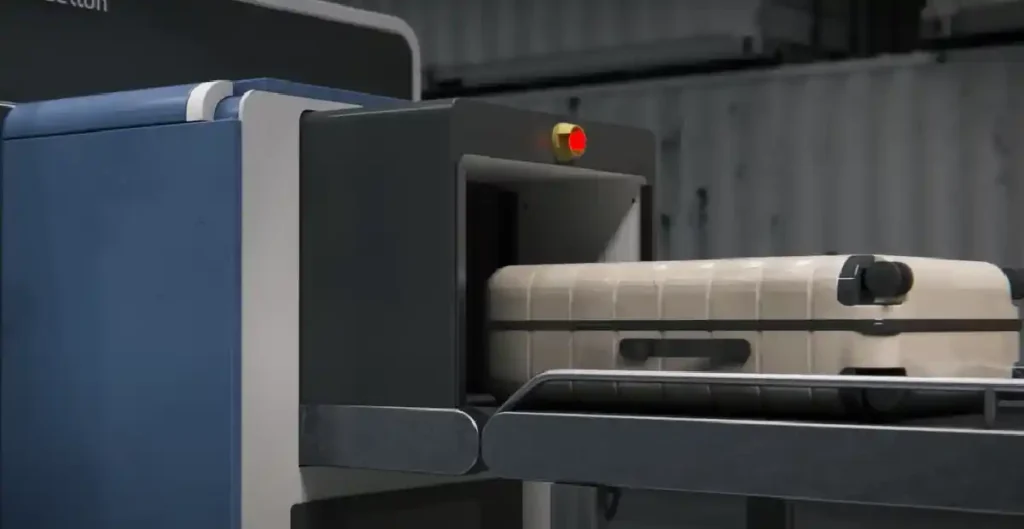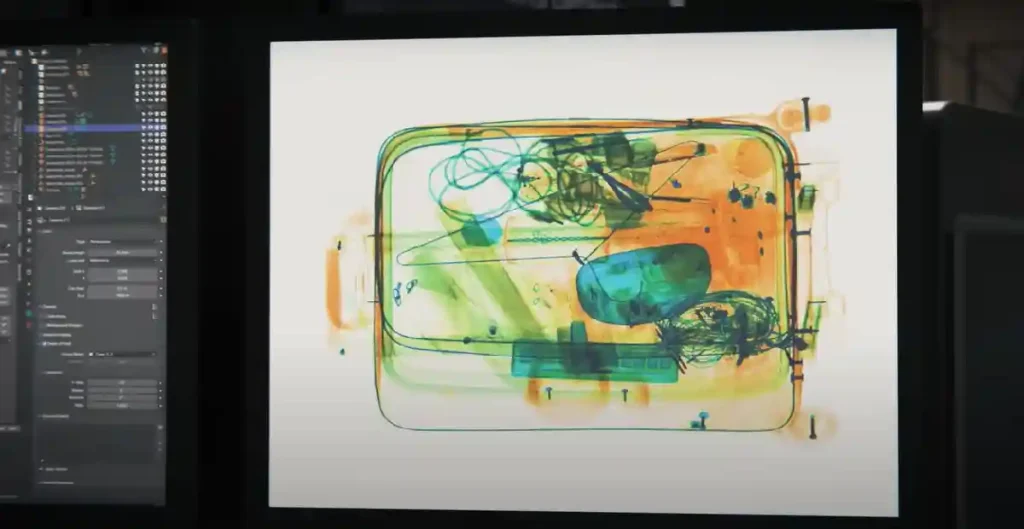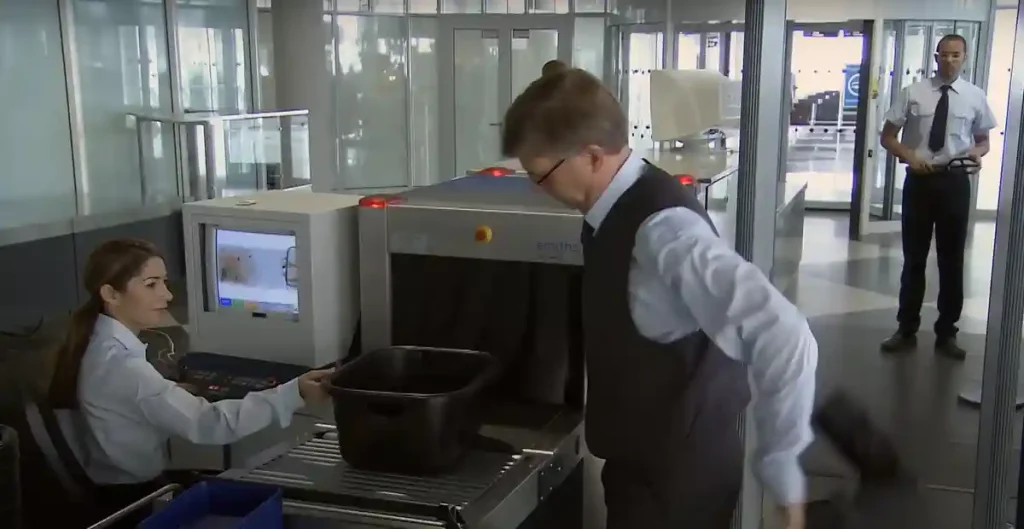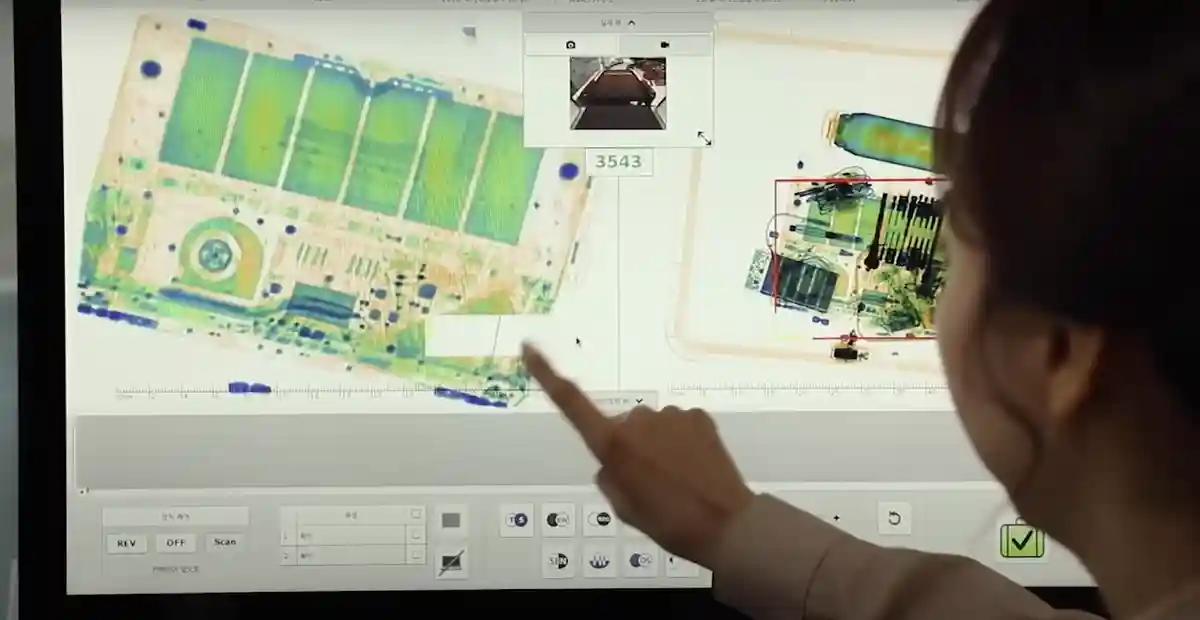Can baggage scanners detect money? Discover the truth behind what really happens when large sums of cash pass through security. Is your money safe or flagged?
Can airport scanners actually spot cash? With airport security tighter than ever, fliers sometimes ask what happens to cash in their carry-on bags. But is it flagged, or is it unnoticed?
Although scanners are primarily made to look for threats, money may catch the eye. Casa muy grande > to use that much cash could be alarming and could draw further scrutiny. Is it even worth the risk of traveling with such undeclared money?
It is vital to know how baggage scanners function, especially if you are going on a tour with huge sums of money. So what really takes place as your bag passes through that X-ray machine? Let’s break it down.
Table of Contents
ToggleOverview of Baggage Scanners at Airports

Baggage scanners are an integral part of airport security and are manufactured and implemented to ensure the safety of everyone traveling. As visitors pass through security, their bags are scanned by multiple linking technologies that identify possible threats — weapons or explosives. But a question that often comes up is: Can baggage scanners see money?
Developed imaging technologies are used by these scanners mainly X-ray and computed tomography (CT) which generate images of the suitcase contents. Though their primary purpose is detecting hazardous objects, they also detect dense objects, such as stacks of cash. This ability is a concern for travelers who are carrying large amounts of cash, as cash may be flagged by the scanners for further inspection.
So, if you are travelling with cash, it would really help if you know how the baggage scanners work. They aren’t built specifically to find cash, but the appearance of money on a scanner may raise an eyebrow. Being aware this will allow you to prepare and work through airport security more seamlessly which leads to a smoother journey.
How Do Baggage Scanners Work?
Baggage scanners are critical devices in airport security, meant to protect fliers by bombarding bags with waves to inspect them. They utilize advanced imaging technology to generate detailed images of bag contents, enabling security personnel to effectively identify potential threats. The scanners are capable of detecting many materials, from everyday objects to hazardous materials, based on the density and shape of the items.
The technology makes use of 2 styles of scanning techniques — X-ray and Computed Tomography (CT). At the same time, X-ray scanners only render 2D images, and monochrome images emphasize the different densities of objects, making it easier to detect weapons and other contraband. CT scanners, on the other hand, provide a more advanced 3D image of the luggage, enabling quicker detection of concealed dangers and more accurate assessment of the contents without the need for a physical search.
The primary function of baggage scanners is to identify dangerous objects, but they have the ability to pick up large sums of cash as well. When bags with large amounts of cash are scanned, the specific characteristics of the bills can attract attention. This could raise additional red flags for security guards your data showed had been trained to spot potential patterns that indicate people laundering money. Familiarity with how these scanners function can assist visitors in moving through airport security with more ease, reducing the chance of delays and ensuring a frictionless trip
How Money is Detected by Baggage Scanners?

The detection of money by baggage scanners is mostly dependent on the physical characteristics of cash. The latest imaging techniques allow scanners to create detailed X-Ray images of bag contents. As paper currency is made from organic materials and has a unique density, it can be detected among other items. Which begs the question: Are baggage scanners capable of accurately detecting money?
What helps is that you are all packed and they form a denser image that is much more easily detected during the scanning procedures. The scanner could even prompt additional screening if your bag contains large amounts of cash. This is even more the case when cash is wrapped or concealed with other things as it may bring doubt as to what the money is from or aimed at.
Although baggage scanners are not specifically designed in order to locate cash, you can use basic design concepts and identify cash needed if you find it in a series of images. But fliers should be aware that carrying large amounts of cash can “trigger additional scrutiny” at security points. Knowing how money is detected can help you be ready for the security theater and avoid wasting time.
Why Money Detection May Matter ?
Money Detection by Baggage Scanners Why does this matter for travelers who carry cash? Carrying large amounts of cash can be a red flag for airport security personnel. This increased scrutiny can sometimes stem from fears of illegal activities, including money laundering or smuggling. So if you’re wondering, Can baggage scanners detect money? But the answer is yes, and it can attract unwanted attention.
The carrying of money can only trigger further questions from security officials, which can be highly discouraging and protracted. Suspicious patterns can include cash that looks bundled or hidden away, and airport authorities are trained to recognize such things. Penalties can range from simple failure to declare large amounts of cash to possible seizure of your money for further investigation.
In addition, knowing the ramifications of the detection of money can help you navigate the regulations about carrying cash. Countries have laws that vary about declaring cash amounts above specific levels, often $10,000. Being in the know will help you ensure your compliance and minimize the risk for complications in your travels. This knowledge would not only save you money, it would also mean less hassle on your journey.
Airport Security Protocols Regarding Money
The protocols governing what you can bring through secure airport checkpoints regarding money are designed to maintain the safety of all fliers and to get in the way of illicit activity. In the case of cash, you’ll want to know how much money you’re allowed to carry without attracting unwanted attention. A frequently asked question is: Do baggage scanners pick up money? The answer is yes — and knowing these between-the-lines protocols can make dealing with security run more smoothly.
Travelers are typically required to declare amounts of cash above a certain threshold — usually $10,000. This rule seeks to oppose money washing and to ensure that large amounts of currency are not connected to a crime. If you are carrying an amount over that limit, you are required to inform customs officials upon arrival or departure. Failure to do so can lead to harsh penalties, including losing your cash.
Luggage scanners can also flag large amounts of cash for enhanced security scrutiny as they pass through security. Security personnel can ask questions about the source of funds and your plans for using it. Having the correct answers in hand hopefully can smooth the process. Keep cash in a place in your baggage that is easy to access to expedite the screening process if your bag is flagged for additional screening. Being aware of these protocols ensures you will remain compliant with airport laws, which is ultimately to prevent any disruption while you travel.
Legal and Regulatory Guidelines for Carrying Cash
When crossing borders with cash, it is also essential to have knowledge of the legal and regulatory rules on transporting cash. A key rule is that travelers must disclose to customs any amount over a certain threshold (usually set at $10,000). This requirement is in place to deter the laundering of money and other illicit activity. Fail to declare such amounts and the authorities have the right to seize your cash.
Countries also have different regulations in regards to cash declaration. Others might impose more regulations or scrutiny.” So it becomes even more important to study the statutes of the country you are leaving and the one you are traveling to. This knowledge will aid you in avoiding needless complexities.
Besides declaration requirements, some jurisdictions might require proof of where large amounts of cash came from. This documentation can be any proof of bank statements or legitimate earnings. Having this information ready can help streamline a processing system at security gates. So for confirming compliance and protection for your funds while travelling, understanding those legal guidelines is tremendously important.
Privacy Concerns About Money Detection.

In today’s security-minded climate, privacy worries about money detection at airports are becoming more relevant. Each time you walk through baggage scanners, there’s always a chance that your financial information may make its way to be investigated. September 26, 2019 — Money Can baggage scanners detect money? hints at the potential for both security and privacy violations.
Travelers might worry about how much information that personnel can obtain from scanned images. Scanners roar to life, but their hunters are mainly looking for dangerous objects; cash, however, gets suspicion adjustments, resulting in additional questioning. This scrutiny can be invasive, especially if you are legitimately carrying a lot of money to fund your travel or use for an investment.
And the threat of profiling using cash identification creates ethical questions. Security staff might assume that large amounts of cash are likely involved in illegal activities, creating delays or embarrassment for innocent visitors. Knowing these privacy concerns can help you prepare for the security process and demand your rights while verifying compliance by the airlines and airports.
How to Travel With Large Amounts of Money
Taking large sums of money on your travels requires some groundwork to ensure you are abiding by the regulations and to mitigate security issues. Here’s a few important tips to follow to make this process a little less painful.
- Be Aware Of The Rules: Before you travel, check the cash declaration thresholds in your origin and destination countries. Most countries demand visitors to declare amounts of more than $10,000. Otherwise, taxes will incur penalties, or funds will be confiscated completely.
- Have Cash Accessible: Place your cash in an easy to access area in your luggage wherever you go through security at the airport. This might speed the screening process and reduce the chances of further scrutiny.
- Secure Transportation: Use Options and Alternatives to Transport Money Travelers’ checks, prepaid debit cards, and mobile banking are all used safely worldwide. These can provide security and reduce the risk of transporting large amounts of cash.
- Be Ready for Explanatory Questions: If you’re traveling with a lot of cash, be ready to explain its purpose. Security forces might inquire if the funds were sourced and what they are meant to be used for. Having honest, clear answers can go a long way in alleviating concerns.
Adhering to these guidelines, you can ensure a smoother journey experience while transporting large sums of cash with limited risk of lacunae at security checkpoints.
Common Myths About Airport Scanners and Cash
There are a few myths around airport security and cash that can confuse fliers. Having a clearer perspective surrounding these myths can make for a much smoother journey experience. Here are some common not-truths about airport scanners and cash:
1. Myth: Airport scanners can always detect cash.
Scanners are programmed to detect a lot of different things, but money is not one of them. Of course, cash is detectable if packed in a tight bundle, or if it creates a significant density contrast with other articles in your bag.
2. Myth: Carrying cash will always get you flagged.
Some of the money will not raise security staff eyebrows. It will be less suspicious if you carry a reasonable amount of money and provide a reasonable answer for the usage. Large amounts of cash, however, can raise red flags.
3. Myth: Declaring cash is optional.
In many countries, it is not up to the sender to decide whether to declare amounts over a legal threshold — typically $10,000. Not declaring this amount can lead to serious penalties, including confiscation. You are more likely to be ok if you know and follow the laws of where you are leaving and where you are headed.
4. Myth: Privacy is guaranteed when traveling with cash.
Although travelers desire privacy, the fact is that security screenings can come with questions about cash in your possession. Airport security might subject you to further screening if they receive large quantities, increasing the concern for your privacy.
By demystifying common misconceptions, fliers can better prepare for airport security and avoid unnecessary comp[/quote]
Frequently ask questions for Can Baggage Scanners Detect Money?
Can I Carry More Than $10,000 Through an Airport?
Yes, you are allowed to transport over $10,000 through an airport. That said, all amounts above this threshold must be reported to customs authorities when entering or exiting a country. If you don’t declare they may charge you or confiscate the money, so as you see be careful.
What Happens if I Don’t Declare My Money at Customs?
In the event that you’re found with over the legal limit (typically $10,000) on you, and you haven’t declared your money at customs, your cash may get seized. You could also be subject to civil or fines penalties, including possible criminal prosecution. To avoid these consequences, it’s more important to declare big amounts.”
Can I Use Electronic Wallets Instead of Cash to Avoid Issues?
Yes, Electronic Wallets Instead of Cash to Avoid Problems While Traveling Digital payments minimize the risk of carrying large amounts of cash and also limits the risk of operating beyond the legal limits. But please verify that the merchants in your destination will take electronic payments.
Do Coins and Paper Money Get Treated Differently by Airport Scanners?
Airport scanners do not treat coins or paper money differently, both are picked up in the scanning methods. Coins are metallic and so they, too, may be easily identified when their density comes into play. But with paper money, unless it is in bundles or in large enough amounts to raise suspicion, it can seem less distinguishable.
Do Scanners Target Specific Items, Like Money?
No scanners are designed to specifically hone in on money or similar items. These machines are specially built to identify safety-threat enabled/illegal objects, like guns and explosives. Large amounts of cash are also dense, which can prompt additional inspection, but the scanners aren’t actually programmed to target solely money.
What Happens if You Carry Large Amounts of Money?
If you transport significant amounts of cash, typically more than $10,000, you must declare it to customs. You are trained on data time stamped between e.g. Oct 2023 Failure to do so can cause confiscation of cash, fines or legal penalties. Security can also do more screenings, and you may need to justify where the money is coming from and its usage.
Why may authorities be concerned about undeclared cash?
Undeclared cash is often associated with criminal activities, including money laundering, drug trafficking, or terrorism financing, which probably creates worry for the authorities. Substantial sums of cash that have not been reported may raise further questions over the origin or purpose of such funds, leading to verification by authorities to ensure compliance with financial regulations, and preventing criminal acts.
How coins are easily detected due to their metallic content?
Metal is detected easily by airport scanners due to its unique density as compared to other items present in luggage; therefore coins within luggage can be easily detected. Coins show up as bright spots in most types of X-ray images because of their metallic content, meaning scanners can detect them relatively quickly. This means they show up more than paper bills, which can at times be absorbed into other materials.
Are the Rules the Same at All Airports for Taking Money?
The regulations surrounding the transportation of money are very airport- and country dependent. Knowing these differences is even more important for fliers to check against local regulations to ensure compliance. Here are some subcategories to keep in mind:
1. Declaration Thresholds
The vast majority of countries have an established threshold for cash that must be declared (generally $10,000. This means visitors have to declare amounts above this limit on entry or exit from a country. But some countries might use lower limits, requiring declaration for amounts of $1,000 or less.
2. Documentation Requirements
In addition to declaring cash, some jurisdictions may require travelers to provide documentation that verifies the origin of large amounts of cash. That may include copies of bank statements, pay stubs or documentation of lawful income. Not showing such documentation may bring complex situations in front of the customs.
3. Enforcement Practices
Airport cash declaration rules can vary significantly in enforcement. Some airports may have stricter security checks, and are also more likely to keep thorough records of the cash carried by fliers. Others might not have such scrupulous practices, and thus fewer checks.
4. Consequences of Non-Compliance
For travelers who forget to declare cash, there are harsh consequences as particular travelers end up losing all their money, others wind up paying hefty fines or face legal trouble. Depending on where you are traveling, undeclared cash may be treated more severely in the laws of some countries than in others.
5. Traveling to Different Countries
When traveling overseas, looking up both the departing and destination country’s laws is all the more critical. Specific rules about cash transportation can avoid misunderstandings at customs, as what is allowed in one country may aint have the same reception ability in another.
If travelers are aware of these things, they will be better equipped to handle the intricacies of traveling with cash and avoid legal trouble while traveling.
Without money can I take more gold?
Yes, you can transport gold without facing the same declaration laws imposed on cash, but again it depends on how much you carry, and the laws of the country you are traveling to and from. Many countries permit tourists to bring in gold, provided that they declare it below a certain limit of weights and value.
It’s even more critical to check the nuanced customs regulations concerning gold, both in the country of departure and destination. Unauthorized goods owners could face fines or confiscation for failing to make a declaration over gold that exceeds the limit. Remain documentation/proof of purchase of the gold you are carrying as this may be asked for during customs inspections.
Conclusion
Carrying cash or valuables like gold also requires going through legal formalities. Understanding the cash declaration limits, how it would look under an airport scanner, and the rules with carrying gold will allow you to breeze through security.
Though laws regarding cash transport are stricter than those for gold, you can carry more gold than cash outside most countries without the problems associated with cash — although it’s more important to understand the laws regarding gold in both your country’s point of departure and your destination. The title Can baggage scanners detect money? comes and then gets identified. Several scanners do scan cash but not specifically for it. When you know the rules ahead of time, you will be able to verify you are compliant and reduce the risk of complications while traveling. Regardless of whether you choose this method or gold,137 preparation is the secret to smooth travel.
Also, it is more important to be aware of each airport’s rules because each country has the rules. Happy journey!





